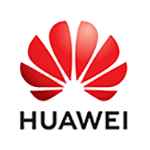
Tim O'Reilly
Founder and CEO, O'Reilly Media
Tim O’Reilly is the founder and CEO of O’Reilly Media, Inc. His original business plan was simply “interesting work for interesting people,” and that’s worked out pretty well. O’Reilly Media delivers online learning, publishes books, runs conferences, urges companies to create more value than they capture, and tries to change the world by spreading and amplifying the knowledge of innovators. Tim has a history of convening conversations that reshape the computer industry. In 1998, he organized the meeting where the term “open source software” was agreed on and helped the business world understand its importance. In 2004, with the Web 2.0 Summit, he defined how “Web 2.0” represented not only the resurgence of the web after the dot-com bust but a new model for the computer industry based on big data, collective intelligence, and the internet as a platform. In 2009, with his Gov 2.0 Summit, he framed a conversation about the modernization of government technology that has shaped policy and spawned initiatives at the federal, state, and local level and around the world. He has now turned his attention to implications of AI, the on-demand economy, and other technologies that are transforming the nature of work and the future shape of the business world. This is the subject of his book from Harper Business, WTF: What’s the Future and Why It’s Up to Us. In addition to his role at O’Reilly Media, Tim is a partner at early-stage venture firm O’Reilly AlphaTech Ventures (OATV) and serves on the boards of Maker Media (which was spun out from O’Reilly Media in 2012), Code for America, PeerJ, Civis Analytics, and PopVox.
Sessions
Sponsorship Opportunities
For exhibition and sponsorship opportunities, email oscon@oreilly.com
Partner Opportunities
For information on trade opportunities with O'Reilly conferences, email partners@oreilly.com
Contact Us
View a complete list of OSCON contacts
©2018, O'Reilly Media, Inc. • (800) 889-8969 or (707) 827-7019 • Monday-Friday 7:30am-5pm PT • All trademarks and registered trademarks appearing on oreilly.com are the property of their respective owners. • confreg@oreilly.com




























